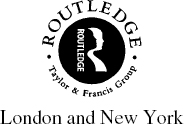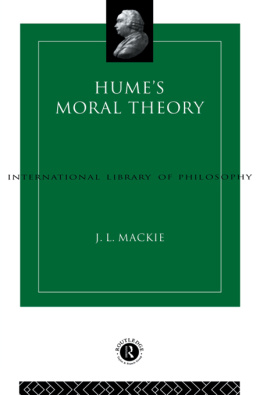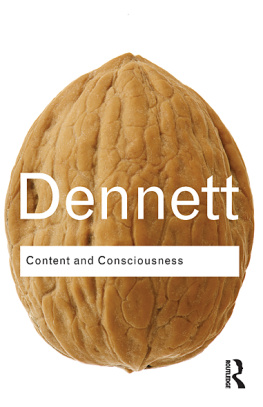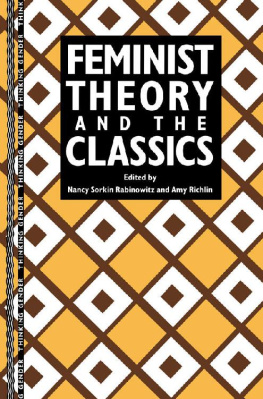J. L. MacKie - Hume’s Moral Theory
Here you can read online J. L. MacKie - Hume’s Moral Theory full text of the book (entire story) in english for free. Download pdf and epub, get meaning, cover and reviews about this ebook. year: 2015, publisher: Routledge, genre: Science. Description of the work, (preface) as well as reviews are available. Best literature library LitArk.com created for fans of good reading and offers a wide selection of genres:
Romance novel
Science fiction
Adventure
Detective
Science
History
Home and family
Prose
Art
Politics
Computer
Non-fiction
Religion
Business
Children
Humor
Choose a favorite category and find really read worthwhile books. Enjoy immersion in the world of imagination, feel the emotions of the characters or learn something new for yourself, make an fascinating discovery.
- Book:Hume’s Moral Theory
- Author:
- Publisher:Routledge
- Genre:
- Year:2015
- Rating:3 / 5
- Favourites:Add to favourites
- Your mark:
- 60
- 1
- 2
- 3
- 4
- 5
Hume’s Moral Theory: summary, description and annotation
We offer to read an annotation, description, summary or preface (depends on what the author of the book "Hume’s Moral Theory" wrote himself). If you haven't found the necessary information about the book — write in the comments, we will try to find it.
Hume’s Moral Theory — read online for free the complete book (whole text) full work
Below is the text of the book, divided by pages. System saving the place of the last page read, allows you to conveniently read the book "Hume’s Moral Theory" online for free, without having to search again every time where you left off. Put a bookmark, and you can go to the page where you finished reading at any time.
Font size:
Interval:
Bookmark:

Humes Moral Theory
Humes Moral Theory
J.L.Mackie

First published 1980
by Routledge
11 New Fetter Lane, London EC4P 4EE
Simultaneously published in the USA and Canada
by Routledge
29 West 35th Street, New York, NY 10001
Routledge is an imprint of the Taylor & Francis Group
This edition published in the Taylor & Francis e-Library, 2005.
To purchase your own copy of this or any of Taylor & Francis or Routledges
collection of thousands of eBooks please go to www.eBookstore.tandf.co.uk.
1980 J.L.Mackie
All rights reserved. No part of this book may be reprinted or reproduced or utilized in any form or by any electronic, mechanical, or other means, now known or hereafter invented, including photocopying and recording, or in any information storage or retrieval system, without permission in writing from the publishers.
British Library Cataloguing in Publication Data
A catalogue record for this book is available from the British Library
Library of Congress Cataloguing in Publication Data
A catalogue record for this book is available from the Library of Congress
ISBN 0-203-35989-5 Master e-book ISBN
ISBN 0-203-37245-X (Adobe eReader Format)
ISBN 0-415-10436-X (Print Edition)
CONTENTS
PREFACE
Humes moral theory has been relatively neglected, as compared with some other parts of his philosophy. Indeed, all that many reasonably well-informed students of philosophy know about it is that he said (or, alternatively, that he did not say) that you cannot derive an ought from an is. But Humes Law, as this has been called, is not the whole, or even the most important part, of his moral theory. It is compatible with an objectivist or intuitionist view which Hume would certainly have rejected, and it contains no hint of his fascinating account of what he called the artificial virtues, or of his anticipations of utilitarianism, to which Bentham ascribed his own conversion to that doctrine. Also, Humes theory is best seen in the context of, and as a contribution to, an extended debate on moral philosophy which we can take as beginning with Hobbes, being continued by members of both the rationalist and the moral sense or sentimentalist schools, and concluding with the writings of two of Humes critics, Richard Price and Thomas Reid. Some of the main issues in this debate are whether there are, or are not, objective moral values, whether men are by nature completely selfish or are made for society, whether morality depends in any way upon God and religion, and how and by what faculty we discern the difference between vice and virtue. The works in which this debate was carried on were addressed to an educated general public rather than to specialists in philosophy, and they are written in a straightforward, forthright way, without technicalities or obfuscation or evasion. They are not free from errors and fallacies, but where they go wrong they do so openly, and their mistakes are often pointed out by other participants in the debate. I think, therefore, that attention to this debate is a very good method of learning at least part of the core of moral philosophyfor example, learning to distinguish moral phenomenology, the description of our ordinary moral experience and concepts and beliefs, from questions about the status of moral judgments and the explanation at a deeper level of moral thinking as a whole. Moreover, adequate selections from the works of these writers are readily available in D.D.Raphaels British Moralists 16501800 (Oxford, 1969), where most of the passages I quote or refer to can be found. I hope that my book will encourage readers to go further into the writings not only of Hume himself, but also of his predecessors and successors.
An important exception to the general neglect of Humes moral theory is the thorough examination of one part of it by Jonathan Harrison in Humes Moral Epistemology (Oxford, 1976). My own discussion owes a good deal to this, and also to another, not yet published, work in which Harrison examines with the same thoroughness the other main parts of Humes theory. But there are, naturally enough, some points on which I disagree with Harrison. An earlier book which deals very clearly with one theme in the debate among the British moralists, and relates it to what G.E.Moore called the naturalistic fallacy, is Arthur Priors Logic and the Basis of Ethics (Oxford, 1949). An admirable account of the theory of the passions on which Humes moral theory is based is given in Pall S.Ardals Passion and Value in Humes Treatise (Edinburgh, 1966).
This book has another purpose as well. In the Notes and References in my Ethics: Inventing Right and Wrong (Penguin, 1977) I remarked that the best illustration and support for the view of ethics which I had presented in the first chapter of that book are provided by the works of some of the eighteenth-century British moralists. I am now developing that hint: I hope that my examination of the arguments of Hume and his predecessors and successors will serve, indirectly, as a further explanation and defence of several theses of my own.
I am very grateful to Michael Lockwood, Gene Mason, Roy Park, and Gerhard Streminger, all of whom read an earlier version of this book and whose comments have, I believe, helped me to improve it.
JLM
I
INTRODUCTION: OUTLINE OF HUMES THEORY
It occupies the whole of Book III, but the section in Book II entitled Of the influencing motives of the will is also very important; it states his psychology of action, on which some of the main arguments at the beginning of Book III are based. We have, then, these divisions of his argument:
| II iii 3: | Psychology of Action |
| III i 12: | Moral Epistemology |
| III ii 112: | The Artificial Virtues |
| III iii 15: | The Natural Virtues |
| III iii 6: | Conclusion |
Humes psychology of action is summed up in his dictum that reason is, and ought only to be, the slave of the passions. Less dramatically, his view is that all knowledge, whether of a priori truths or of empirical facts, all beliefs, and all rational calculation are by themselves inert. By themselves none of these things, which he includes under the heading of reason in a broad sense, provides a motive for action, or for inaction either. None of these items, nor any collection of items from this list alone, can motivate anyone either to do anything or to refrain from doing anything. Motivation for or against any action requires something else, what he would call a passion or sentiment, and more particularly a desire. In conjunction with desires, of course, beliefs, knowledge, and calculation can help to determine what one does. Hume is not saying (what would be most implausible) that reason has no bearing at all on action. Indeed in the Enquiry he puts what is essentially the same view less provocatively by saying that reason and sentiment concur in almost all moral determinations and conclusionsthat is, they cooperate to determine the judgments which issue in choice and action. In the Treatise he expresses it differently: since the original drive to action comes from some desire or passion or sentiment, he sees this as the governing element, with belief or knowledge or calculation playing a subordinate role, merely helping the desire to achieve satisfaction. He argues further that as reason cannot by itself supply any motive to action, equally it cannot by itself oppose any motive to action. No passion is, strictly speaking, contrary to reason. A passion can, however, if we speak less strictly, be called unreasonable in either of two senses: a passion may be based on the supposition of the existence of some object, and reason may discover that no such object exists, or reason may point out that a means chosen to secure the object of some passion is insufficient for that end.
Next pageFont size:
Interval:
Bookmark:
Similar books «Hume’s Moral Theory»
Look at similar books to Hume’s Moral Theory. We have selected literature similar in name and meaning in the hope of providing readers with more options to find new, interesting, not yet read works.
Discussion, reviews of the book Hume’s Moral Theory and just readers' own opinions. Leave your comments, write what you think about the work, its meaning or the main characters. Specify what exactly you liked and what you didn't like, and why you think so.






